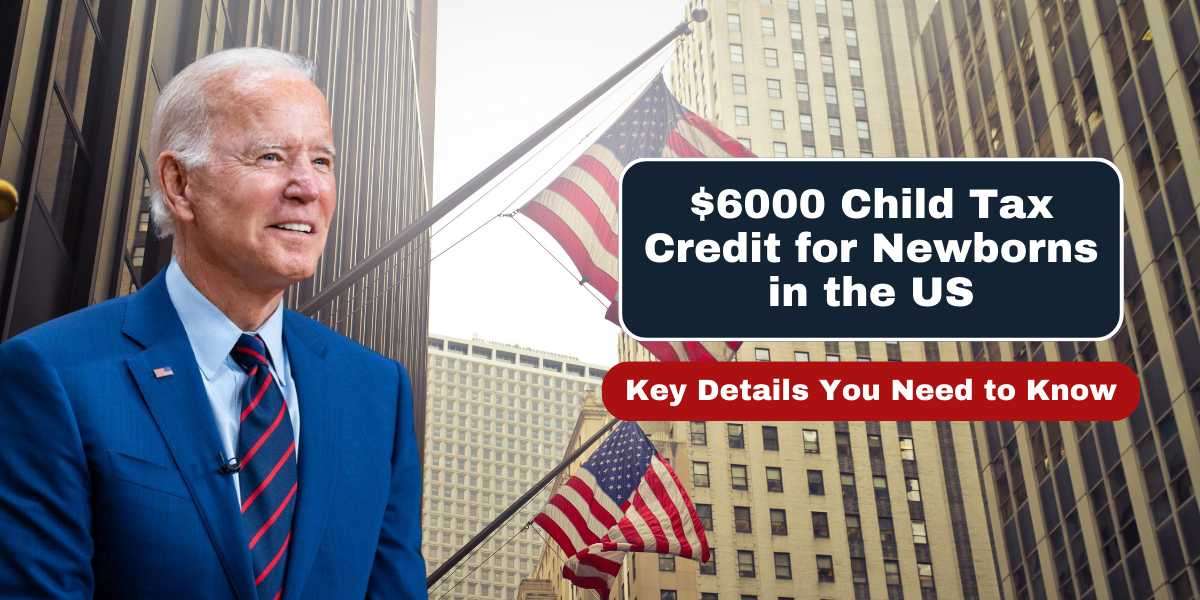The child tax credit has long been a key component of American tax policy, aimed at easing financial burdens for families and reducing child poverty. In a recent proposal, Democratic candidate Kamala Harris has suggested a significant increase in the child tax credit specifically for parents of newborns.
This proposal has generated considerable debate as the U.S. approaches the upcoming elections. This guide will explore Harris’s $6,000 child tax credit proposal, its potential implications, challenges, and overall impact on American families.
Overview of the $6,000 Child Tax Credit Proposal
The child tax credit is designed to help alleviate the financial pressures of raising children. Currently, U.S. tax law allows a credit of up to $2,000 per child under 17. This credit is partially refundable, which benefits lower-income families even if they do not owe taxes.
Kamala Harris has proposed increasing this credit to $6,000 specifically for the first year of a newborn’s life. This initiative aims to offer substantial financial support during a time of increased expenses for new parents.
Key Features of the Proposal
- Increased Amount: The proposed credit would rise from $2,000 to $6,000 for families with newborns.
- Refundable Credit: The credit would be fully refundable, meaning families could receive the full amount even if they owe no taxes.
- No Income or Work Requirements: Eligibility for the credit would not depend on income or employment status.
- Purpose: The credit aims to assist families with high costs during the first year of a child's life, including medical expenses and baby essentials.
Comparison with Previous Child Tax Credits
The proposed $6,000 credit represents a notable increase from the current $2,000 credit and builds on the 2021 temporary expansion, which raised the credit to $3,600 for young children. This new proposal is intended to provide even greater support during the critical first year of a child's life.
Historical Context
The child tax credit has been expanded several times. For example, the American Rescue Plan of 2021 temporarily increased the credit to $3,600 for children under six and $3,000 for children aged six to seventeen. This temporary increase significantly reduced child poverty, highlighting the potential impact of enhanced financial support for families.
How the $6,000 Child Tax Credit Would Work
The $6,000 credit would be fully refundable, providing the full amount to families regardless of their tax liability. It would be available to all parents of newborns during the first year of life, without any income or work requirements.
- Eligibility: Any family with a newborn in the first year would be eligible for the credit. The credit would be fully refundable and not dependent on income or employment.
- Implementation: The credit would be distributed over the baby's first year, although specific details on the payment structure (e.g., monthly or lump sum) are not yet clarified.
- Refundable Nature: Families would receive the full $6,000 even if their tax liability is less than this amount.
- Ease of Access: The removal of income and work requirements aims to make the credit accessible to all families.
Impact on Families
The $6,000 child tax credit would provide substantial financial relief, helping to cover the high costs of the first year of a child's life, including:
- Medical Costs: Covering prenatal and postnatal care expenses.
- Baby Essentials: Assisting with the cost of items like diapers and cribs.
- Income Impact: Offsetting lost income for parents on parental leave.
Reducing Child Poverty
The proposal aims to reduce child poverty by providing significant financial support during the first year of a child's life, similar to the success of the 2021 credit expansion.
Republican Perspectives and Alternative Proposals
While Kamala Harris’s proposal is a bold expansion, some Republicans have also expressed interest in increasing the child tax credit. For instance:
- Donald Trump: The former President has hinted at a possible expansion of the child tax credit.
- Senator J.D. Vance: Trump’s running mate has suggested support for a $5,000 per child credit.
Challenges and Negotiations
Expanding the child tax credit would require negotiations with Congress, focusing on funding and economic feasibility. The specifics of Republican proposals and how they might align with or differ from Harris’s plan are still under discussion.
Funding the $6,000 Child Tax Credit
Harris’s proposal suggests funding the $6,000 credit through increased taxes on large corporations and high-income earners. Details on these tax hikes and their economic impact are still being debated.
- Proposed Funding Mechanism: Increased taxes on large corporations and high-income individuals.
- Concerns and Considerations: Issues of sustainability and economic impact need to be addressed.
Conclusion
Kamala Harris’s proposal to increase the child tax credit to $6,000 for newborns represents a significant shift in policy aimed at providing more substantial support to new parents. By targeting the early stages of a child’s life, the proposal seeks to alleviate financial pressures and reduce child poverty. However, its success will depend on effective funding, implementation, and negotiations with Congress and other stakeholders.
FAQs
Who is eligible for the $6,000 child tax credit? The credit is available to parents of newborns during the first year of the child’s life, regardless of income or employment status.
How does the $6,000 credit differ from the current child tax credit? The current credit is up to $2,000 per child under 17. The proposed $6,000 credit would specifically apply to newborns in their first year, offering more substantial financial support.
How will the expanded child tax credit be funded? Kamala Harris proposes funding the expansion through increased taxes on large corporations and high-income individuals. Specific details on these tax increases are still being outlined.








